Key Concepts:
- Chronology: Understanding the sequence of events in the past and how they relate to each other.
- Cause and Effect: Analyzing the reasons behind historical events and their consequences.
- Change and Continuity: Exploring how societies, cultures, and civilizations have evolved over time while also identifying elements that have remained constant.
- Historical Interpretation: Recognizing different perspectives and interpretations of historical events and figures.
- Historical Empathy: Putting yourself in the shoes of people from the past to understand their experiences and motivations.
Key Skills:
- Research: Using primary and secondary sources to gather information about the past.
- Analysis: Examining and evaluating historical evidence to form interpretations and conclusions.
- Critical Thinking: Questioning and challenging assumptions about historical events and figures.
- Communication: Expressing historical ideas and arguments effectively through writing and speaking.
- Contextualization: Placing historical events within their broader historical, cultural, and geographical context.
[History] Related Worksheets and Study Guides:
.◂Science Worksheets and Study Guides Sixth Grade. Magnetism
Study Guide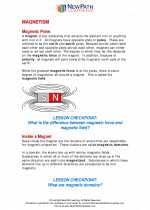 Magnetism
Magnetism  Activity Lesson
Activity Lesson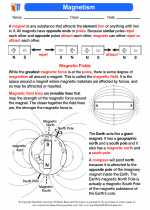 Magnetism
Magnetism  Worksheet/Answer key
Worksheet/Answer key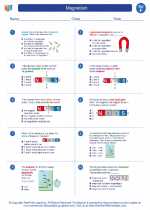 Magnetism
Magnetism  Worksheet/Answer key
Worksheet/Answer key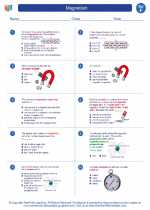 Magnetism
Magnetism  Worksheet/Answer key
Worksheet/Answer key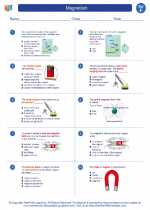 Magnetism
Magnetism  Worksheet/Answer key
Worksheet/Answer key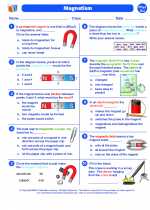 Magnetism
Magnetism  Vocabulary/Answer key
Vocabulary/Answer key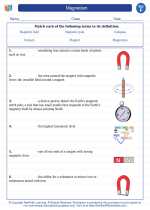 Magnetism
Magnetism 

 Activity Lesson
Activity Lesson
 Worksheet/Answer key
Worksheet/Answer key
 Worksheet/Answer key
Worksheet/Answer key
 Worksheet/Answer key
Worksheet/Answer key
 Worksheet/Answer key
Worksheet/Answer key
 Vocabulary/Answer key
Vocabulary/Answer key

The resources above cover the following skills:
EARTH AND SPACE SCIENCE
Earth’s Systems
Develop and use models of Earth’s interior composition to illustrate the resulting magnetic field (e.g., magnetic poles) and to explain its measureable effects (e.g., protection from cosmic radiation).